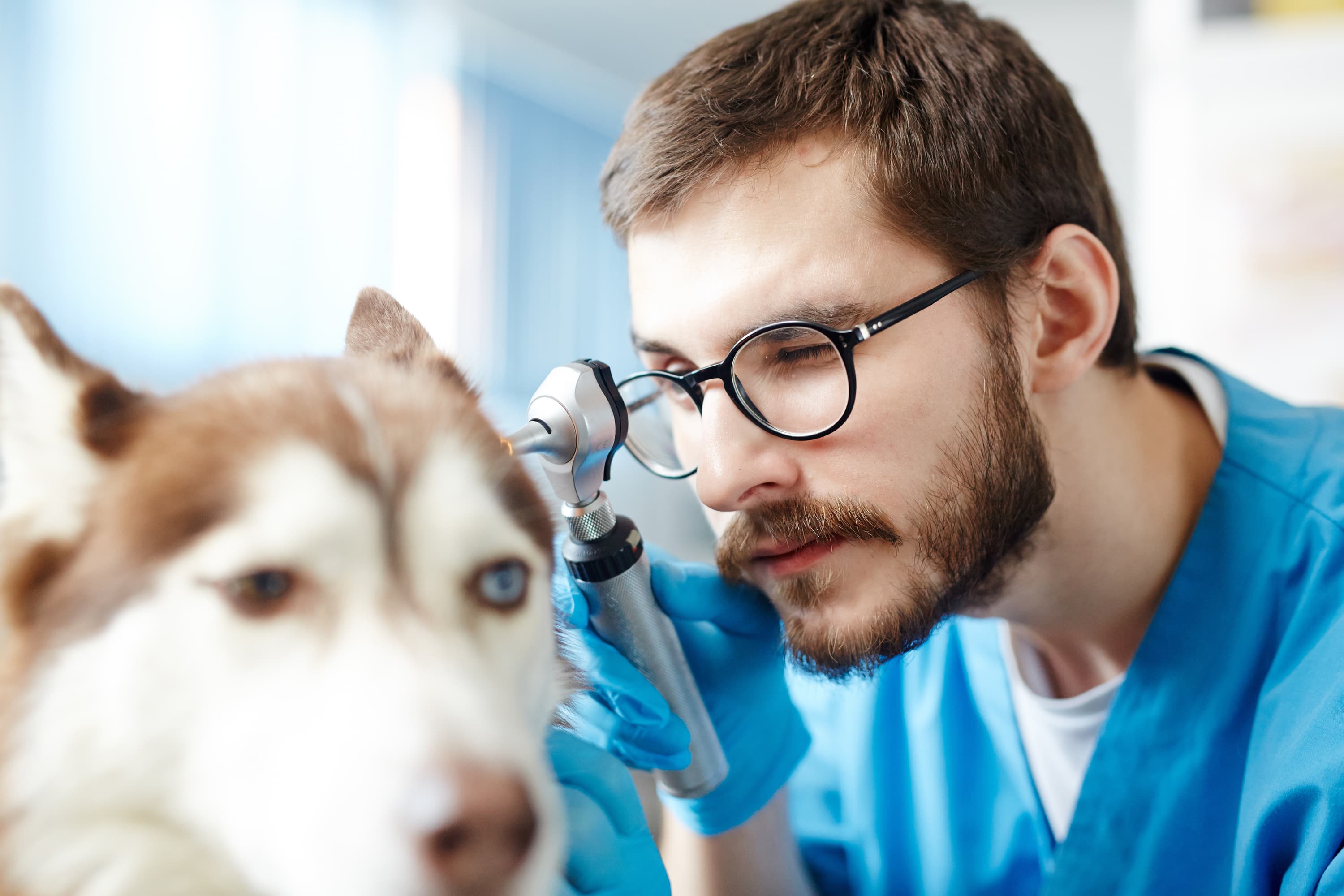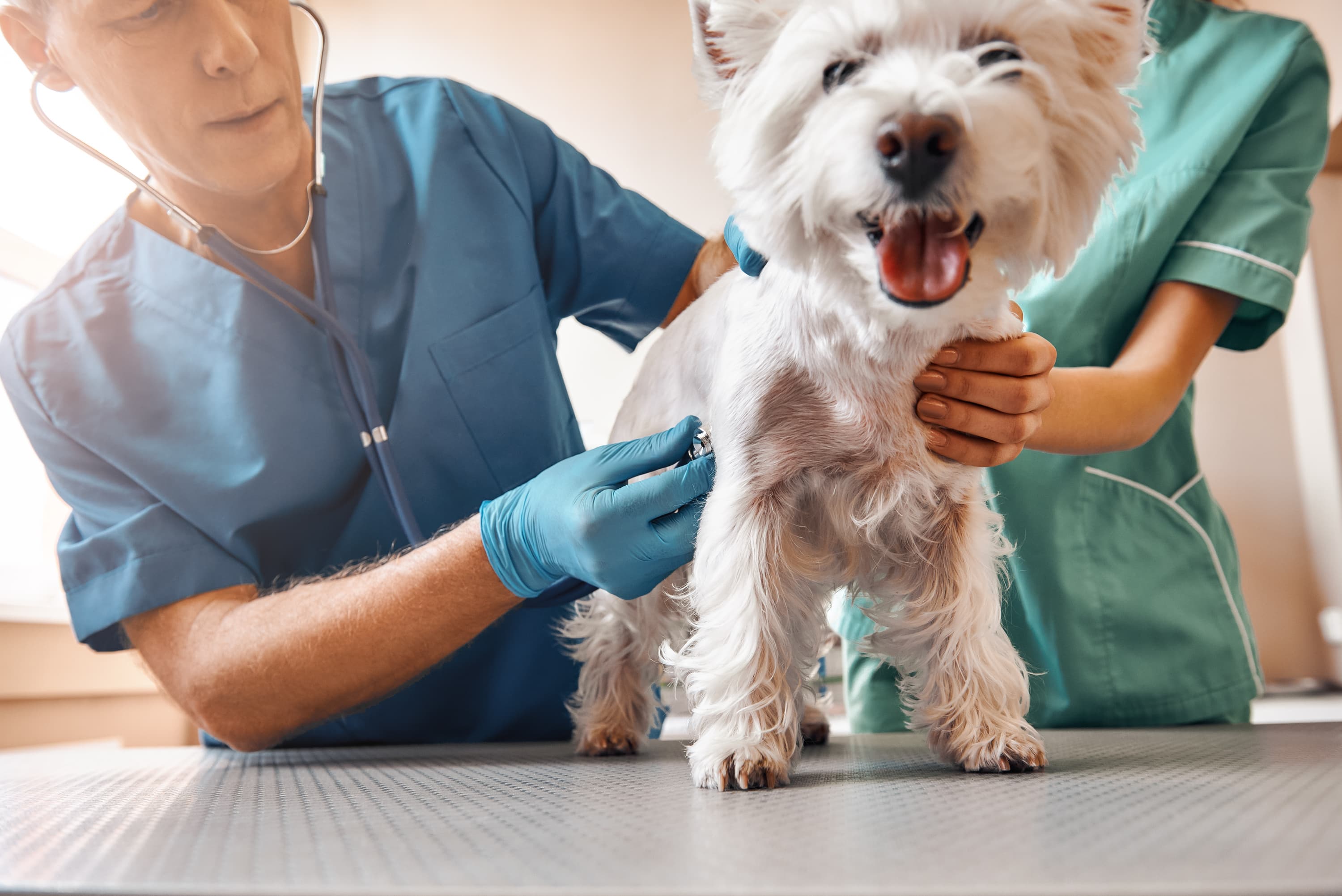
Passion alone isn’t enough to be a successful veterinary practice owner. You’ll also need top-notch decision-making skills, some hands-on business experience and, yes, the financial resources to turn your dream into reality.
But how much does it really cost to buy a veterinary practice? What influences a practice’s value? And should you buy an existing practice or start your own vet clinic from scratch?
In this article, we’ve rounded up everything you need to answer these questions and more.
The cost of buying a vet practice
“How much does it cost to buy a veterinary practice?” is a bit like asking “How long is a piece of string?” There are so many variables to take into account that it’s impossible to give an accurate answer.
Admittedly, this isn’t very helpful if you’re trying to do some financial planning, so here’s a loose ballpark figure: buying a modest vet practice can cost anywhere from $200,000 to $1.5 million and up. The exact figure depends on a bunch of different factors, including the size, profitability, revenue growth rate, location, and specialization of the practice.
How are vet practice valuations calculated?

A valuation is the process of determining the economic value of a business. It analyzes every aspect of a business, giving owners an objective estimate of the current value of their company. Veterinary practice owners who wish to sell their clinic often base their sale price on the valuation.
While there are a few different valuation methods, appraisers tend to use an income approach for valuing veterinary practices. This approach primarily looks at the earnings or profitability of a practice. Generally speaking, the more profit a practice makes, the more it’s worth.
This is, of course, a simplified explanation. The valuation process is incredibly complex, with appraisers taking dozens of influencing factors into account and assigning each factor a weighted multiple to determine a practice’s value. The details of the valuation process are beyond the scope of this article.
Why are some vet practices more valuable than others?

There are many factors that contribute to the overall value of a veterinary practice. Some of the most common factors include:
- Revenue growth rate: Historic revenue growth can be a predictor of future revenue growth. Faster revenue growth typically leads to faster profit growth, which accelerates ROI.
- Profitability: Solid profit margins indicate that a practice is run efficiently. Profitability is usually measured using the EBITDA method, which shows earnings before interest, taxes, depreciation, depreciation, and amortization. Financially healthy small animal hospitals typically generate profits of 10% to 15%, while specialty and emergency hospitals tend to have slightly higher profit margins.
- Location: Vet practices in urban areas with strong population growth tend to command higher prices than clinics in rural areas. Foot traffic, client drive-time, and ease of access can also impact value.
- Practice size: More doctors means more potential revenue and less risk as each individual doctor is less critical to the running of the business. Consequently, practices with multiple practicing veterinarians are generally valued more highly than solo practices.
- Facilities: The quality of a practice’s facilities can influence the buy price. This includes things like the design, cleanliness, and physical condition of the building, as well as environmental and zoning issues that may impact future operations.
- Assets: While valuations tend to focus more on income potential than physical assets, the quality of a practice’s equipment, furniture, and fixings can still influence the clinic’s overall value.
- Market position: There are many intangible elements that can impact the value of a practice. For example, practices with a good brand reputation, loyal customers, and happy staff may be more valuable than clinics that are less well-established in their communities.
Purchasing an established vet practice vs starting from scratch

One of the first things you’ll need to consider as an aspiring practice owner is whether you want to purchase an established vet clinic or start from scratch.
While there are pros and cons to each, most people will find it substantially easier to buy an existing business than to start a new veterinary practice due to the following reasons:
- More attractive to banks: There’s a certain level of inescapable financial uncertainty associated with starting any new business. Existing practices, on the other hand, come with a clear history of revenue, expenses, and profits, which demonstrates repayment feasibility and your overall creditworthiness. The more evidence you have that you can service a business loan, the more likely it is that your loan will be approved. Veterinary specialty lenders have a better understanding of competitive margins and performance benchmarks than general lenders who aren’t familiar with the industry.
- Lower break-even point: Many new vet practices will go years before turning a profit. In contrast, purchasing an existing practice gives you access to an established client base and immediate cash flow, which helps condense the break-even period.
- Location, location, location: A good location is one of the most important aspects of running a successful business. If you’re looking at starting a vet practice in a built-up urban or suburban area, there’s a good chance that most of the prime locations are already taken. Buying an established practice can often be the best way to secure attractive real estate that would otherwise be impossible or prohibitively expensive to buy into.
General tips for buying a veterinary practice

1. Ignore rules of thumb
During the buying process, you’ll undoubtedly run into all sorts of general rules of thumb that attempt to break down the complex valuation process into simple formulas:
- A vet practice’s value is equal to one year’s gross revenue.
- A vet practice’s value is equal to 85% of one year’s gross revenue.
These types of rules are far too simplistic to be of any real use and should not influence your decisions in any way. Proper valuations are incredibly nuanced and look far beyond a practice’s raw revenue.
2. Don’t try to do it on your own
For most people, buying a veterinary practice is a once-in-a-lifetime opportunity. While it may be tempting to tackle the purchase independently, there is a significant level of risk involved with any business acquisition - and if anything goes wrong, you need to be confident that you have the resources to mitigate the issue.
Maximize your chances of a successful purchase by assembling a team of experts (ideally with veterinary-specific experience) to assist with the acquisition. Your advisory team - perhaps made up of a consultant, lawyer, and accountant - can help guide you through the purchase process and ensure any prospective deals are legally sound and aligned with your personal, professional, and financial goals.
3. Timing matters
There isn’t really a “right” or “wrong” time to buy a veterinary practice, but there are certain timing conditions to keep in mind when planning an acquisition. These include:
- Retirement: Your age can influence your purchasing options. Let’s say you have a certain savings target you want to hit before retirement. If you’re in your 40s or 50s, it may be that the only way to reach your goal is to invest in a big practice that will deliver large profits in a relatively short time frame. In contrast, a younger veterinarian has more time to build up to that savings target and can therefore consider smaller, more affordable practices.
- Other investments: It may take several years to start seeing a return on your investment. If you’re planning on making a large purchase in the near future (say, a house or another business), you’ll need to be confident that buying a vet practice won’t leave you over-leveraged.
- Economic conditions: Historically, the veterinary industry has been remarkably resilient to economic downturn. Nevertheless, wider economic conditions (e.g. loan interest rates, employment competition, clients’ disposable income rates, etc.) can impact the outcome of any business venture and should be considered before making any decisions.
4. Price isn’t everything
Don’t let sticker shock scare you off of a potentially great buy. A high price tag is often justified by a practice’s ability to generate profits and maintain growth - both of which are key for securing financing and achieving good ROI.
And the inverse is also true. At first glance, a low-priced practice may appear to be more affordable but look more closely and you may find a history of weak cash flow and poor revenue growth that could hinder your success as a business owner in the long run.
Takeaway
Buying a practice is an exciting milestone in any veterinarian’s career. From hiring decisions to practice management software choices and everything in between, making the transition from vet to business owner gives you full autonomy over the direction of your practice.
However, as with any big investment, purchasing a veterinary practice does come with a degree of risk. Assembling an advisory team, being mindful of the valuation process, and knowing what to look for in a prospective clinic will put you in the strongest position to secure a profitable practice when the time comes to buy.
Talk to the experts
ezyVet helps launch brand new veterinary businesses every single week. We have a whole team of experts dedicated to helping new practice owners find their feet – and we can do the same for you.
If you’re thinking about starting your own practice or have questions that need answers, get in touch with us today. It’s a free service with no obligations, regardless of what stage you’re at on your practice ownership journey.